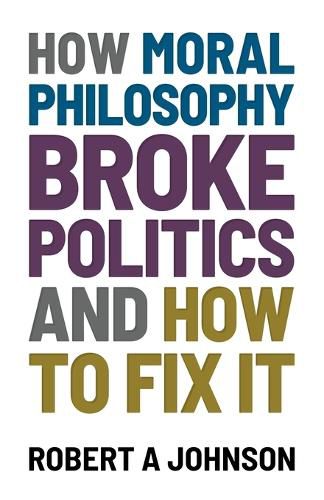Readings Newsletter
Become a Readings Member to make your shopping experience even easier.
Sign in or sign up for free!
You’re not far away from qualifying for FREE standard shipping within Australia
You’ve qualified for FREE standard shipping within Australia
The cart is loading…






This title is printed to order. This book may have been self-published. If so, we cannot guarantee the quality of the content. In the main most books will have gone through the editing process however some may not. We therefore suggest that you be aware of this before ordering this book. If in doubt check either the author or publisher’s details as we are unable to accept any returns unless they are faulty. Please contact us if you have any questions.
We live in a remarkable world: science and technology has shifted our understanding of what's possible and transformed our lives. Rain dances and sun worshipping have been replaced by quantum computers, speedoflight rockets, and our evercloser inching towards genuine artificial intelligence.
But somehow, more and more of us are feeling hopeless; we are still ruled by political systems that haven't hugely changed since they fell into place hundreds, arguably thousands, of years ago. The part of our society that makes decisions on everything from our health to our work is almost completely dysfunctional.
Politicians aren't held to account by truth, aren't striving for shared visions of human thriving, and are allowed to mix and mash their policies based upon sound bites and media furores rather than actually progressing humankind. All the while having to focus on shortterm goals rather than sustainable ideas.
How Moral Philosophy Broke Politics argues that a rational, evidencebased framework for ethics can be developed, by drawing all of our moral opinions back to three basic principles that underlie all of our concerns. By doing this we can rationally judge and weigh new policies and decisions in a way which is accountable and, whilst still debatable, much easier to find consensus on.
If we were to accept this new framework then we would be much better off not just in politics, but in all those areas of life which politics affects. The world has changed unrecognisably in the last thousand years, whilst politics hasn't changed much at all. We need to start using reason to develop it into something useful.
$9.00 standard shipping within Australia
FREE standard shipping within Australia for orders over $100.00
Express & International shipping calculated at checkout
This title is printed to order. This book may have been self-published. If so, we cannot guarantee the quality of the content. In the main most books will have gone through the editing process however some may not. We therefore suggest that you be aware of this before ordering this book. If in doubt check either the author or publisher’s details as we are unable to accept any returns unless they are faulty. Please contact us if you have any questions.
We live in a remarkable world: science and technology has shifted our understanding of what's possible and transformed our lives. Rain dances and sun worshipping have been replaced by quantum computers, speedoflight rockets, and our evercloser inching towards genuine artificial intelligence.
But somehow, more and more of us are feeling hopeless; we are still ruled by political systems that haven't hugely changed since they fell into place hundreds, arguably thousands, of years ago. The part of our society that makes decisions on everything from our health to our work is almost completely dysfunctional.
Politicians aren't held to account by truth, aren't striving for shared visions of human thriving, and are allowed to mix and mash their policies based upon sound bites and media furores rather than actually progressing humankind. All the while having to focus on shortterm goals rather than sustainable ideas.
How Moral Philosophy Broke Politics argues that a rational, evidencebased framework for ethics can be developed, by drawing all of our moral opinions back to three basic principles that underlie all of our concerns. By doing this we can rationally judge and weigh new policies and decisions in a way which is accountable and, whilst still debatable, much easier to find consensus on.
If we were to accept this new framework then we would be much better off not just in politics, but in all those areas of life which politics affects. The world has changed unrecognisably in the last thousand years, whilst politics hasn't changed much at all. We need to start using reason to develop it into something useful.